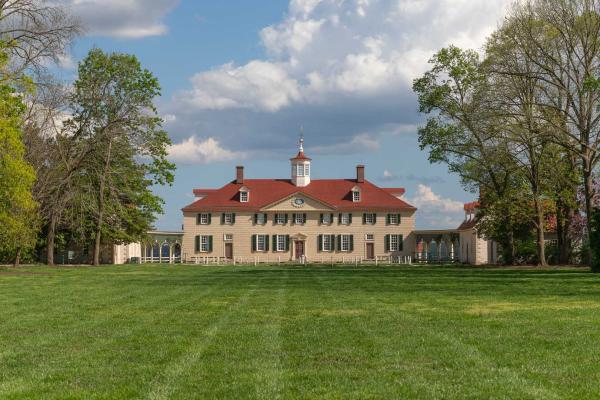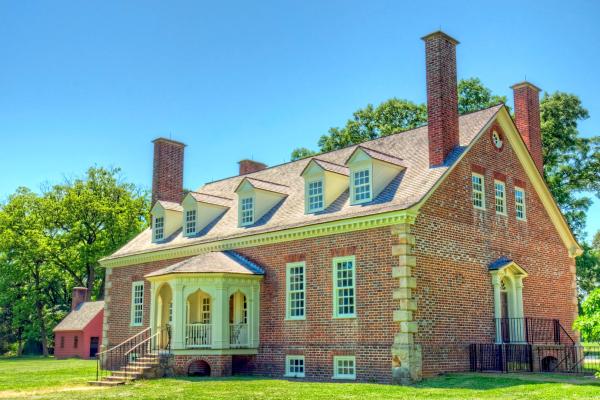Mount Vernon, the plantation home of George Washington, offers visitors a direct connection to the life and legacy of the commander of the Continental Army and first president of the United States. Situated on the banks of the Potomac River in Virginia, the estate was Washington’s residence for almost four decades, where he managed a large working plantation while navigating the challenges of leadership during the Revolution and the founding of the nation. Preserved as a historic site since the 19th century, Mount Vernon stands as both a memorial to Washington and a window into the complexities of his era.
The centerpiece of the site is the mansion itself, restored to its 18th-century appearance, alongside original outbuildings, gardens, and Washington’s tomb. Visitors can explore working reconstructions of the blacksmith shop, distillery, and gristmill, which illustrate the estate’s role as a self-sustaining plantation. The grounds also feature exhibits on the enslaved community whose labor supported Washington’s household and agricultural operations, ensuring that their stories are preserved as part of the site’s interpretation. Views of the Potomac and carefully maintained landscapes further reflect the environment that Washington valued and shaped.
Mount Vernon also emphasizes Washington’s broader role in American history. Exhibits and tours trace his military career, political leadership, and enduring influence on the young republic. The Donald W. Reynolds Museum and Education Center uses artifacts, immersive displays, and films to highlight the Revolution, the Constitution, and Washington’s presidency. By weaving together personal, political, and cultural history, Mount Vernon provides an in-depth understanding of the man at the center of America’s founding and the estate that symbolized his vision of leadership and nationhood.
What's Nearby
Explore more of The Liberty Trail by visiting these nearby attractions.








